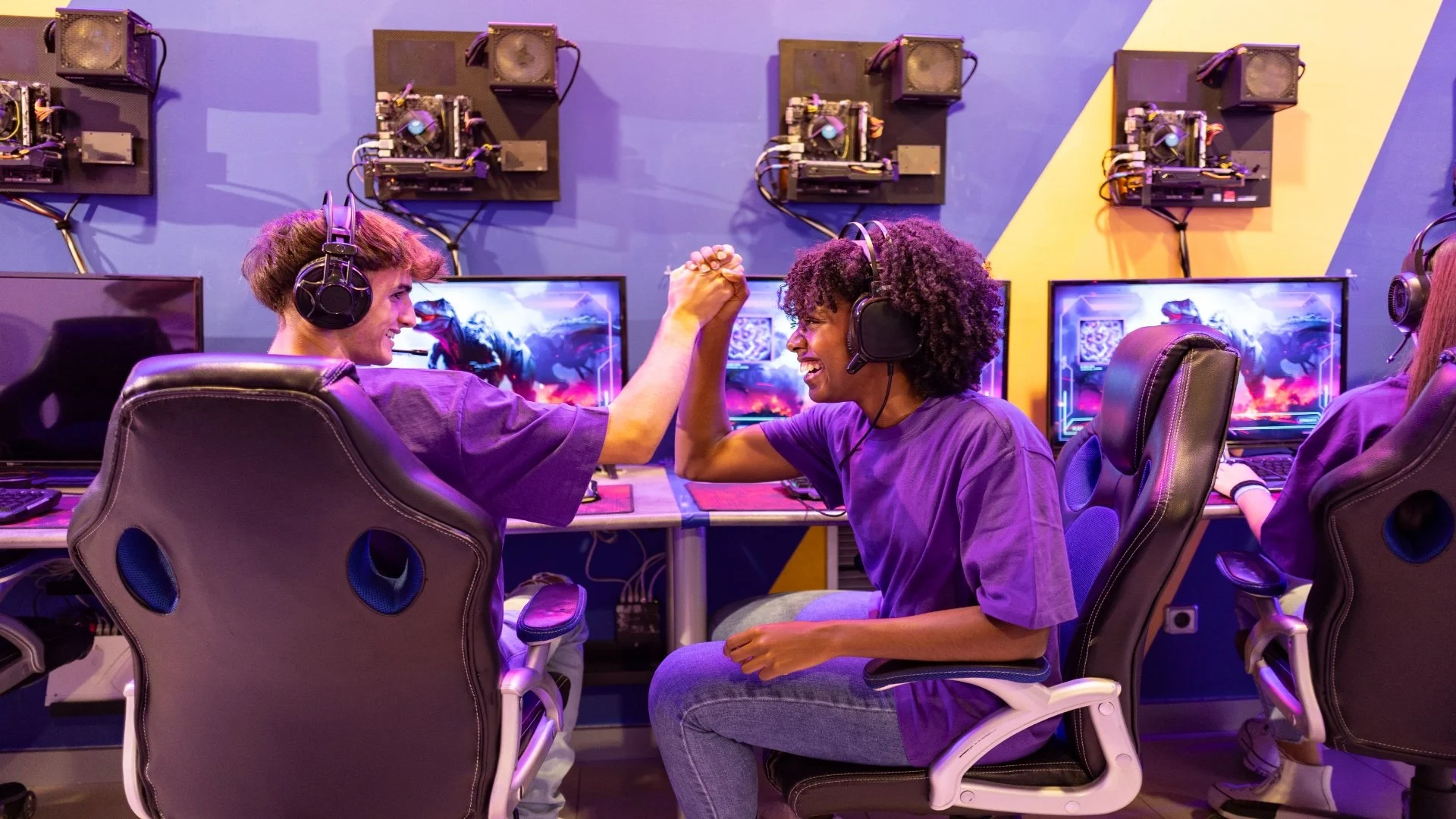Mental Health
How to Help a Child with Mobile Gaming Addiction

Learn effective strategies on how to help a child with gaming addiction on mobile. Discover signs, solutions, and parental action plans to support recovery.
Watching your child spend hours on their mobile device, neglecting schoolwork, friends, and family, can be worrying. You may feel frustrated or unsure how to help. Understanding how to help a child with gaming addiction on mobile is the first step toward positive change.
At The Edge Treatment Center, we provide compassionate guidance and practical strategies to support your child. Our team helps them regain balance, develop healthier habits, and improve emotional well-being, giving you the tools and confidence to support their recovery every step of the way.
Understanding Mobile Gaming Addiction

Mobile gaming addiction is more than just spending extra time on a smartphone or tablet—it is a behavioral condition that can interfere with your child’s daily life. When gaming starts to take priority over schoolwork, social activities, and family interactions, it can be a serious concern that requires your attention.
Signs and Symptoms
Recognizing the signs of mobile gaming addiction is the first step in helping your child. Common behavioral indicators include:
Excessive screen time: Your child may spend hours gaming, often late into the night, and become irritable when asked to stop.
Neglect of responsibilities: Homework, chores, and daily routines may be ignored in favor of gaming.
Emotional distress: Mood swings, irritability, anxiety, or frustration can occur when access to games is limited.
Social withdrawal: Children may avoid friends, family, and other activities they previously enjoyed.
Psychological Effects
Mobile gaming addiction can have a profound impact on your child’s mental and emotional health. Over time, children may develop anxiety, depressive symptoms, or impaired focus and memory.
The constant stimulation from games can make it harder for them to engage in offline tasks, and in some cases, excessive gaming can contribute to low self-esteem or feelings of isolation. Understanding these consequences helps you see why timely intervention is crucial.
The Role of Parents in Intervention
As a parent, your involvement is essential in guiding your child toward healthier habits. While it can feel overwhelming, a structured and compassionate approach can make a significant difference.
Initial Response
It is important to approach your child without confrontation or blame. Start by having calm, honest conversations about your concerns, emphasizing that your goal is to support them, not punish them. Avoid using judgmental language, as this may increase resistance and push your child further into gaming.
Setting Boundaries
Clear rules and limits are key. Consider implementing:
Screen time schedules: Define specific times for gaming and stick to them consistently.
Device-free zones: Encourage times or areas in the home where screens are not allowed, such as during meals or before bedtime.
Involvement in decision-making: Allow your child to have input on limits, which can increase their cooperation and accountability.
Encouraging Alternative Activities
Helping your child discover fulfilling alternatives to gaming is crucial. Introduce hobbies, sports, or creative projects that align with their interests. Encouraging social interactions, outdoor play, or family activities can reduce their dependence on gaming and foster a sense of accomplishment outside of the digital world.

We’re Here To Help You Find Your Way
Would you like more information about mental health or drug addiction? Reach out today.
Professional Help and Treatment Options
While parental guidance is essential, some children may require professional intervention to overcome mobile gaming addiction. Knowing when to seek help and understanding treatment options can make the recovery process smoother for both your child and your family.
When to Seek Professional Help
Signs that your child may need professional support include:
Persistent gaming despite negative consequences.
Severe mood changes or aggression related to gaming.
Declining academic performance or social isolation.
Attempts to hide gaming habits or lying about screen time.
If these signs are present, contacting a specialized center like The Edge Treatment Center can provide the guidance and resources your child needs to recover.
Therapeutic Approaches

Addressing mobile gaming addiction in children often requires more than parental guidance alone. At The Edge Treatment Center, we emphasize evidence-based therapeutic approaches that target both the behavior and the underlying emotional needs driving excessive gaming.
Cognitive-Behavioral Therapy (CBT)
One of the most effective methods for treating gaming addiction is Cognitive-Behavioral Therapy (CBT). CBT helps children recognize the thoughts and triggers that lead to excessive gaming. By identifying these patterns, children learn to manage cravings and develop healthier coping strategies.
CBT also focuses on replacing unhelpful gaming behaviors with constructive activities that enhance social skills, academic performance, and emotional resilience. Through guided exercises and structured sessions, children gradually gain control over their impulses and develop sustainable habits for balanced screen time.
Family Counseling
Gaming addiction does not occur in isolation—it affects the entire family. Family counseling involves parents and caregivers in therapy sessions to foster open communication and mutual understanding.
This approach helps families establish healthy routines, set consistent boundaries, and rebuild trust that may have been strained due to gaming behaviors. By working together, families create a supportive environment that encourages positive changes and strengthens relationships, making it easier for children to adopt new habits.
Behavioral Interventions
Behavioral interventions provide practical, structured strategies that reinforce healthy behavior. For example, reward systems can motivate children to complete offline activities, engage in hobbies, or achieve balanced screen time.
These interventions are tailored to each child’s needs, combining positive reinforcement with clear consequences to encourage accountability. Over time, these strategies help children internalize self-regulation skills, reducing reliance on gaming for emotional relief and promoting overall well-being.
By combining CBT, family counseling, and behavioral interventions, The Edge Treatment Center delivers comprehensive care that addresses both the psychological and behavioral aspects of mobile gaming addiction, helping children reclaim balance in their lives.
Our Role at The Edge Treatment Center

At The Edge Treatment Center, we create personalized treatment plans tailored to each child’s needs. Our team works closely with parents to provide education, coping strategies, and emotional support.
By combining therapy, family involvement, and structured routines, we help children regain control over their gaming habits and develop healthier coping mechanisms for stress and boredom.

We’ll Lead You to New Heights
Do you have more questions about mental health or drug addiction? Reach out.
Preventive Measures and Long-Term Strategies
Preventing relapse and maintaining healthy gaming habits is an ongoing process. Long-term strategies are designed to support your child as they develop self-regulation and resilience.
Education and Awareness
Teaching your child about the potential risks of excessive gaming is an important preventive measure. Discuss the effects on mental health, physical health, and social interactions in a way they can understand. Awareness helps children make informed choices and encourages accountability for their actions.
Promoting Healthy Habits
Balanced routines are key to reducing dependency on gaming. Encourage activities that support both mental and physical well-being:
Regular physical activity: Sports, walking, or exercise help reduce stress and improve mood.
Creative outlets: Art, music, or writing can serve as healthy forms of self-expression.
Consistent routines: Establishing fixed times for meals, sleep, study, and recreation helps children develop structure.
Ongoing Support
Recovery from gaming addiction is not a one-time process. Continuous support from parents and professionals ensures lasting results. Maintain open communication with your child, celebrate progress, and seek additional guidance from The Edge Treatment Center whenever challenges arise. Long-term monitoring and encouragement help your child sustain healthier gaming habits and foster overall emotional well-being.
Mobile Gaming Taking Over Your Child’s Life? We’ll Help You Take It Back
Dealing with mobile gaming addiction in your child can feel overwhelming, but you don’t have to face it alone. At The Edge Treatment Center, we provide compassionate guidance, personalized treatment plans, and practical strategies to help your child regain balance and develop healthier habits.
With our support, you can take the steps needed to address gaming addiction, strengthen family connections, and promote your child’s emotional and social well-being. Reach out today, and let us help you get the support and recovery your child needs to thrive.

We’re Here To Help You Find Your Way
Do you need advice about mental health or drug addiction? Reach out today.
What Are the Early Signs of Mobile Gaming Addiction in Children?
Early signs include irritability or frustration when gaming is limited, neglect of homework, declining academic performance, and withdrawal from friends and family. Children may lose interest in activities they once enjoyed, signaling that gaming is taking priority over daily responsibilities and social interactions.
How Can I Set Effective Screen Time Limits for My Child?
Set clear rules and consistent schedules for gaming, using parental controls if needed. Involve your child in creating limits to encourage cooperation. Establish device-free times, like during meals or homework, and introduce offline activities to gradually reduce reliance on gaming.
When Should I Consider Professional Treatment for My Child's Gaming Addiction?
Seek professional help if gaming disrupts school performance, social life, or emotional health. Look for signs like severe mood swings, aggression, or lying about gaming habits. Persistent problems despite parental limits indicate the need for expert intervention, such as support from The Edge Treatment Center.
What Role Does Family Therapy Play in Treating Gaming Addiction?
Family therapy improves communication, rebuilds trust, and involves parents in the recovery process. It helps families set routines, understand triggers, and provide consistent support, creating a structured and caring environment that encourages children to adopt healthier habits and sustain long-term recovery.
How Can I Support My Child in Developing Healthier Gaming Habits?
Encourage hobbies, sports, and creative activities to provide alternatives to gaming. Use positive reinforcement for balanced screen time, maintain open communication, and create structured routines. Modeling healthy habits yourself reinforces long-term behavior changes and helps your child develop self-discipline and emotional balance.

We’re Here To Help You Find Your Way
If you or a loved one is struggling with addiction, there is hope. Our team can guide you on your journey to recovery. Call us today.
Written by
 Brian Moore
Brian MooreContent Writer
Reviewed by
 Jeremy Arzt
Jeremy ArztChief Clinical Officer
Mental Health
October 22, 2025
